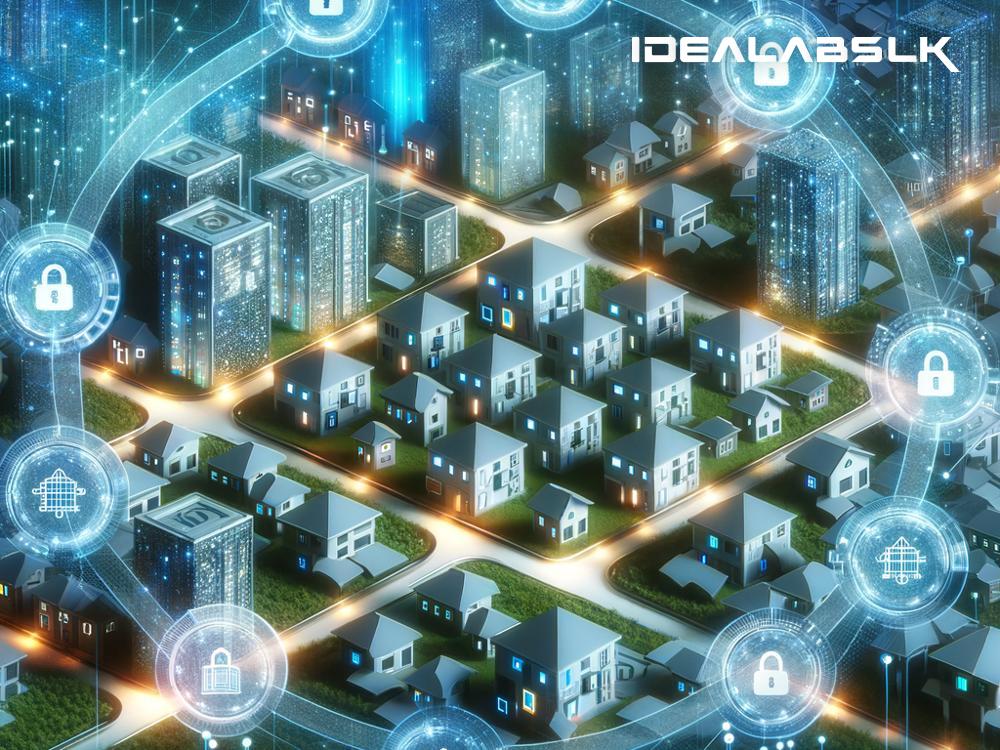How Blockchain is Revolutionizing Real Estate Sales Efficiency
When you think about buying a house, you probably imagine stacks of paperwork, numerous visits to banks and legal offices, and a seemingly endless waiting period. It's no secret that the real estate sales cycle can be frustratingly slow and opaque. But what if I told you that there's a technology poised to revolutionize this process, making it faster, more secure, and transparent? Yes, I am talking about Blockchain.
Blockchain, the same technology behind cryptocurrencies like Bitcoin, is making its way into the real estate sector, promising to streamline and secure the sales cycle like never before. So, how exactly does Blockchain do this? Let's break it down into simple terms and explore how it's transforming the way we buy and sell property.
1. What is Blockchain?
Before we dive into its applications in real estate, let's quickly understand what Blockchain is. Imagine it as a digital ledger or record book that is duplicated and distributed across a network of computers. Once a record is entered into the chain, it is almost impossible to alter. This system offers a level of transparency and security that is unmatched by traditional record-keeping methods, making it an exciting innovation for industries like real estate.
2. Reducing Fraud
Real estate transactions involve significant amounts of money and highly valuable assets, making them prime targets for fraud. Blockchain's secure and immutable nature means that every transaction, once recorded, cannot be altered or deleted. This helps in significantly reducing the risk of fraud in property transactions, ensuring that the property's history is transparent and tamper-proof.
3. Streamlining the Process
The traditional property sales cycle involves numerous stakeholders - buyers, sellers, lawyers, banks, and more. Each of these parties requires access to documents and records, often leading to a slow and cumbersome process filled with paperwork. With Blockchain, all relevant documents can be securely stored and easily shared among stakeholders in real-time. This not only speeds up the process but also reduces the potential for errors and miscommunication.
4. Eliminating the Middleman
One of the most groundbreaking aspects of Blockchain in real estate is the potential to eliminate intermediaries. Traditionally, transactions require middlemen like brokers, lawyers, and banks, adding complexity and costs to the process. Blockchain enables smart contracts - self-executing contracts with the terms of the agreement directly written into code. This means transactions can be completed directly between buyers and sellers, reducing costs and increasing efficiency.
5. Improving Transparency
The lack of transparency is a significant issue in the real estate industry. Buyers often struggle to access accurate information about a property's history, leading to uncertainty and mistrust. Blockchain's digital ledger provides a transparent and accessible record of every transaction related to a property, from its construction through to every sale and purchase. This enables buyers to make informed decisions, boosting confidence in the transaction process.
6. Enhancing Security
Finally, the secure nature of Blockchain technology offers unparalleled protection against data breaches. In an era where digital information is increasingly vulnerable, Blockchain provides a secure platform for storing sensitive information related to real estate transactions. This added layer of security not only protects against fraud but also builds trust among parties involved in the transaction.
Conclusion
The traditional real estate sales cycle is ripe for disruption, and Blockchain technology holds the key. Its applications in reducing fraud, streamlining processes, eliminating unnecessary intermediaries, improving transparency, and enhancing security are poised to revolutionize the way we buy and sell property. While we are still in the early stages of adoption, it's clear that Blockchain has the potential to make the real estate sales cycle more efficient, secure, and transparent. As more stakeholders recognize its benefits, we can expect to see an acceleration in the use of Blockchain in real estate, heralding a new era in property transactions.
The journey toward a Blockchain-powered real estate sector won't happen overnight, but the potential benefits make it an exciting future worth striving for. It's about time the real estate industry caught up with the digital age, and Blockchain could be the catalyst for this much-needed transformation.

